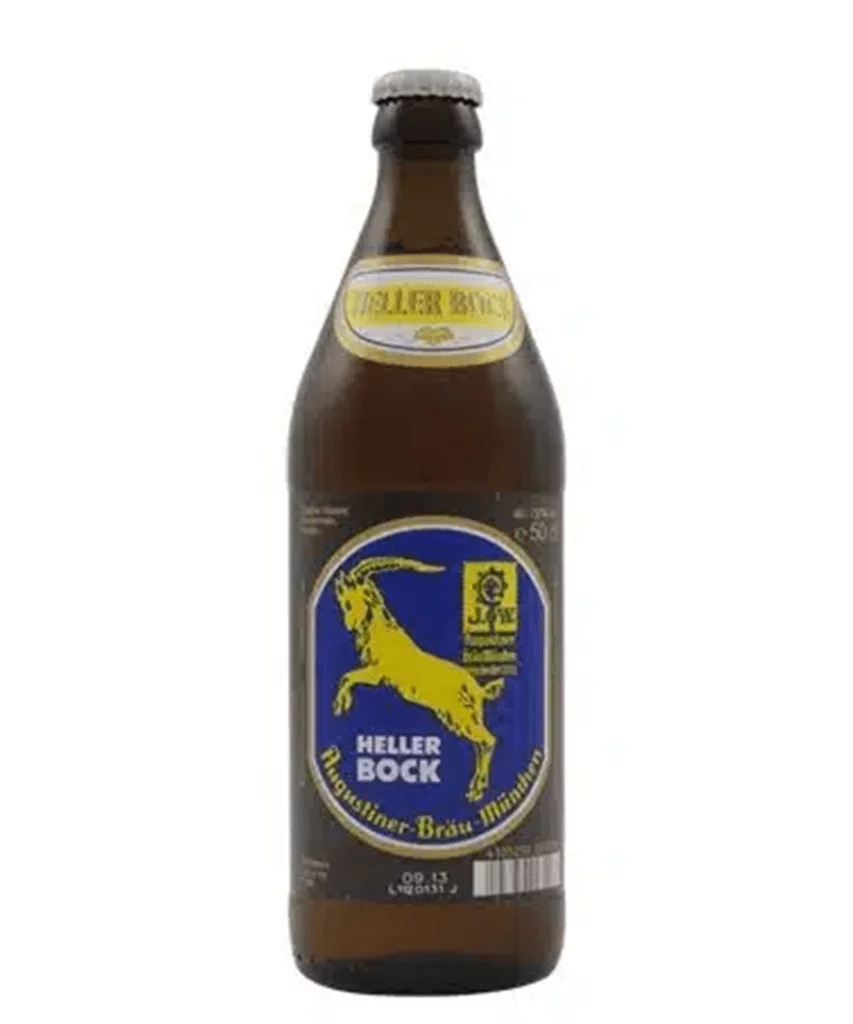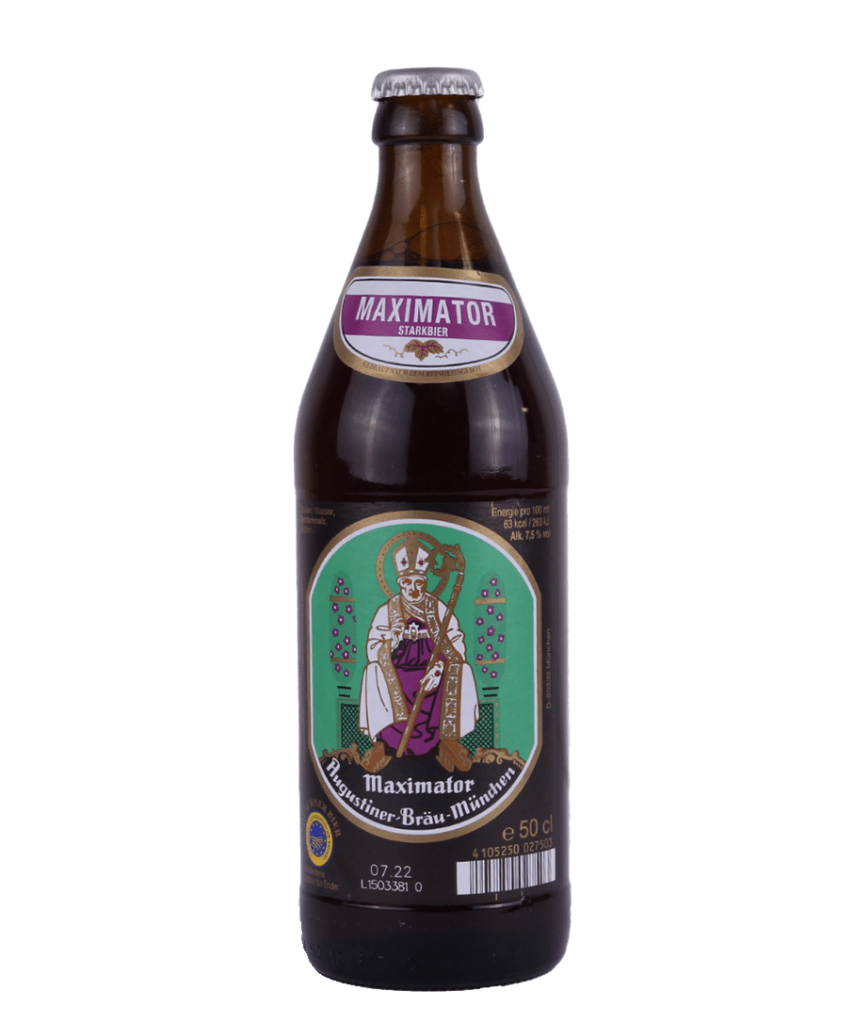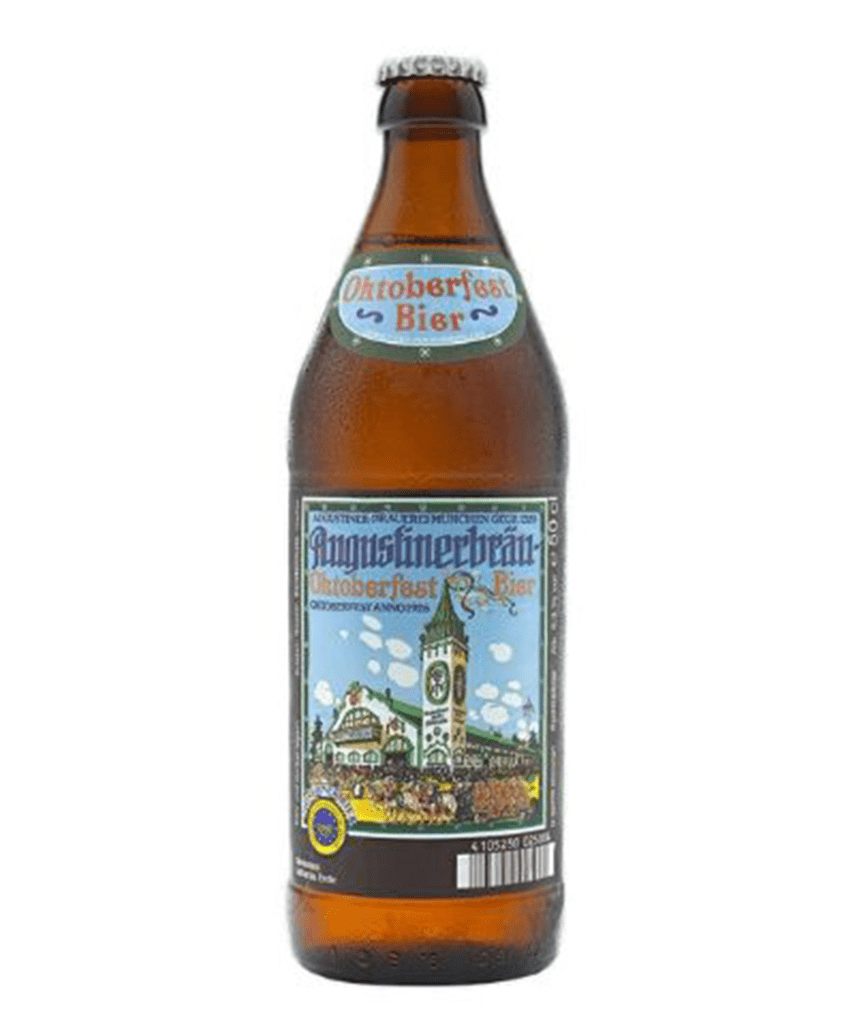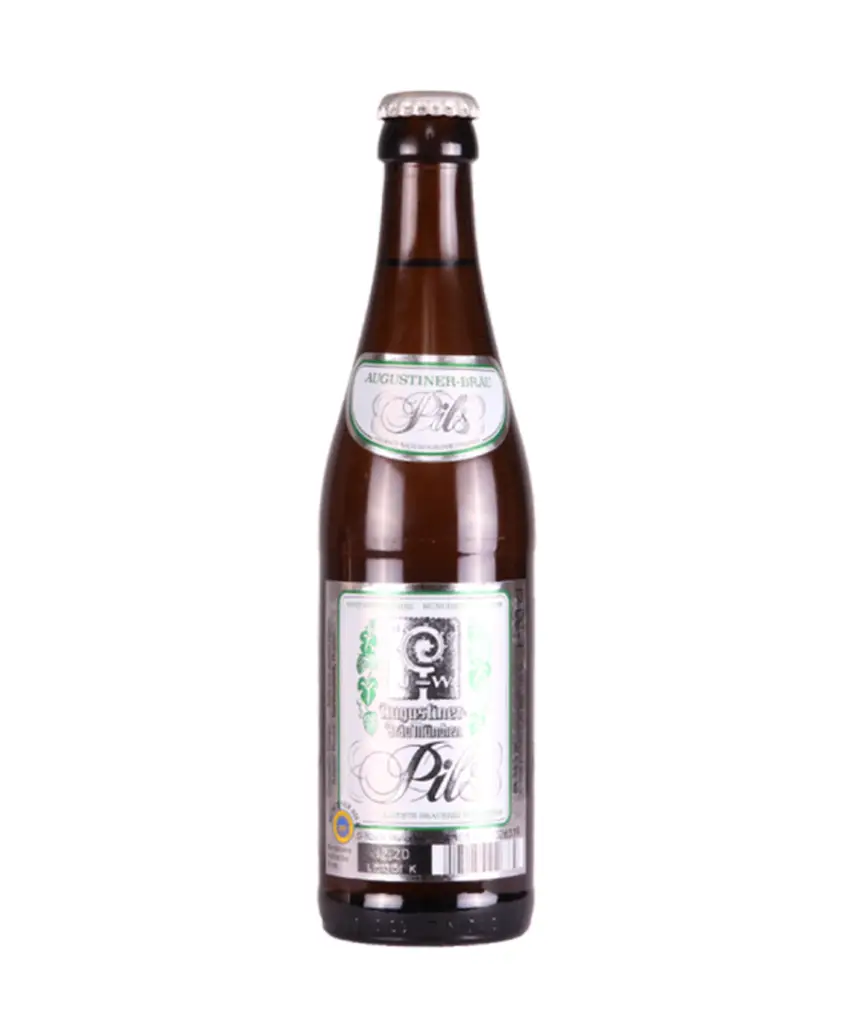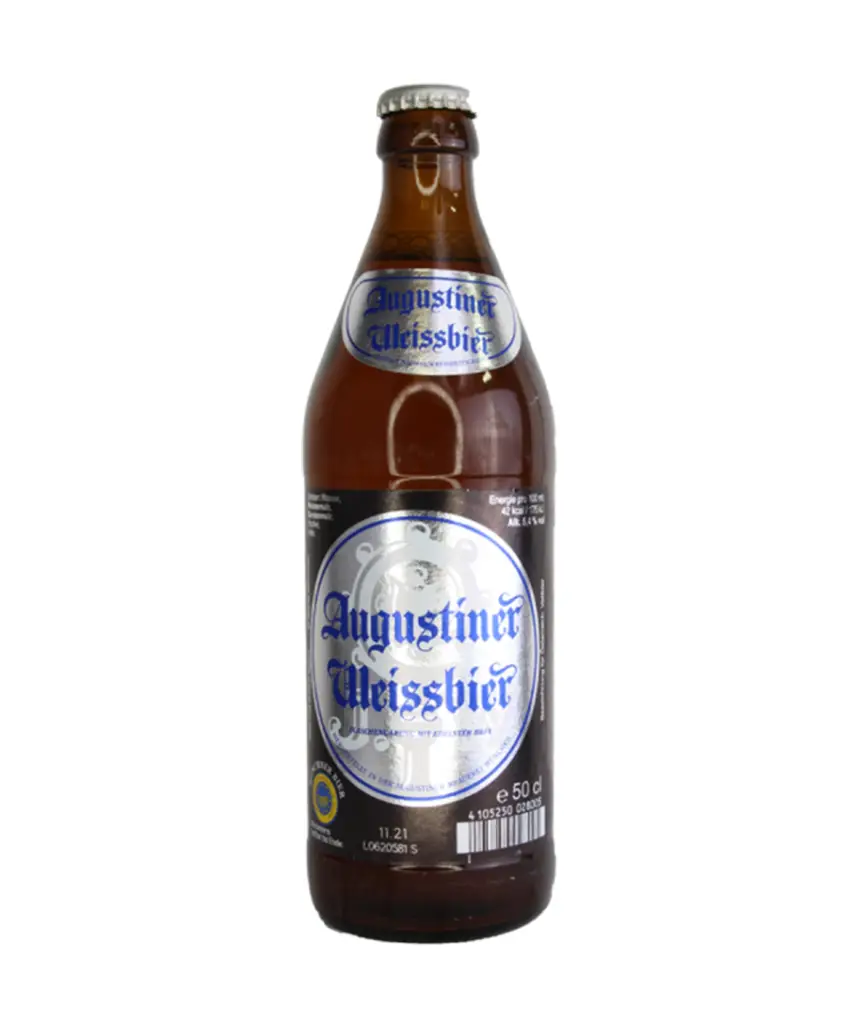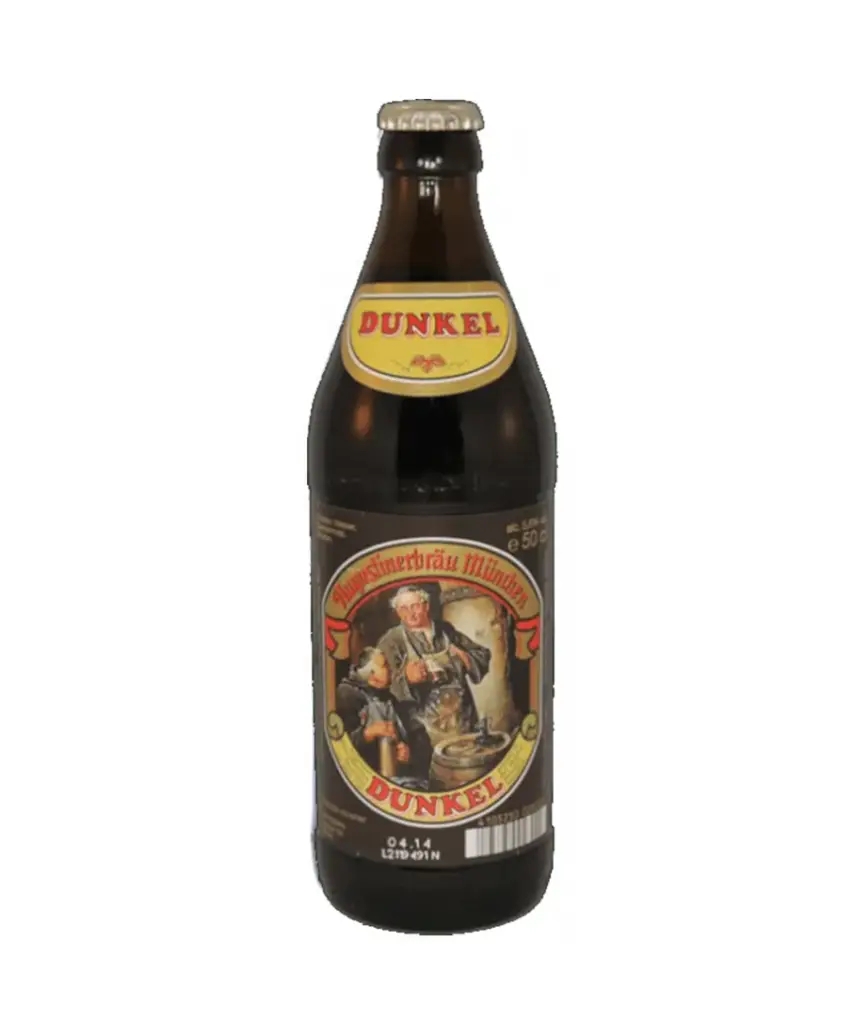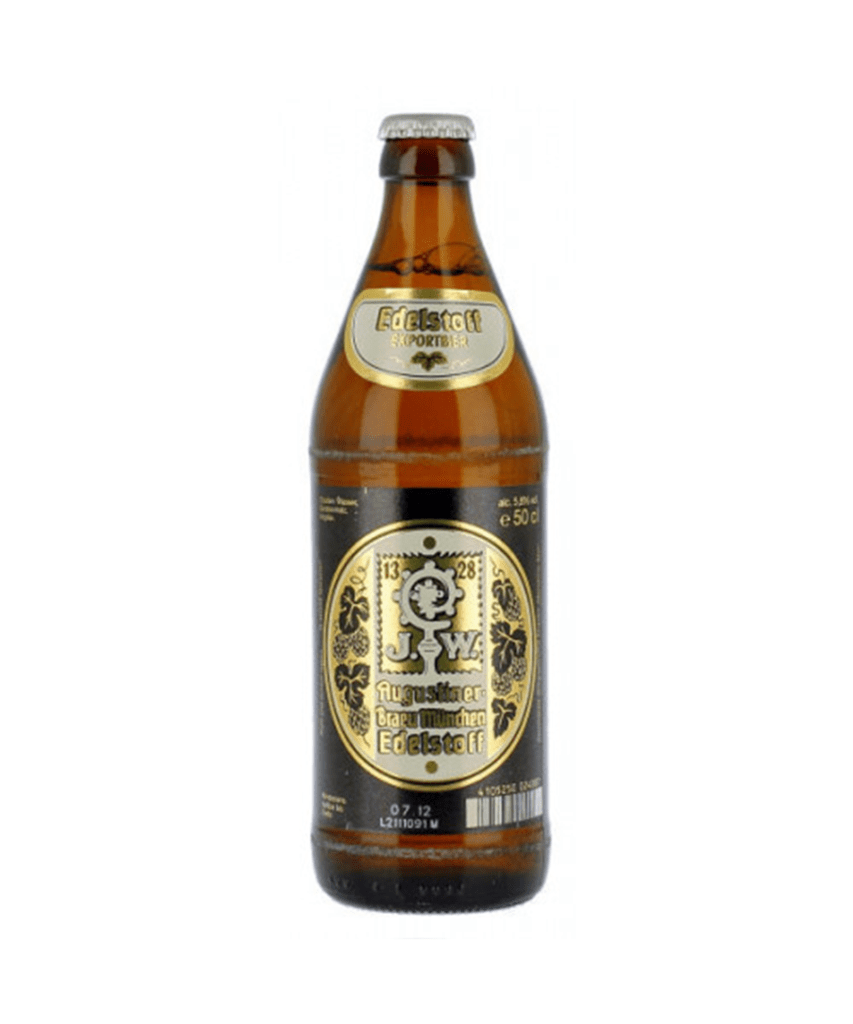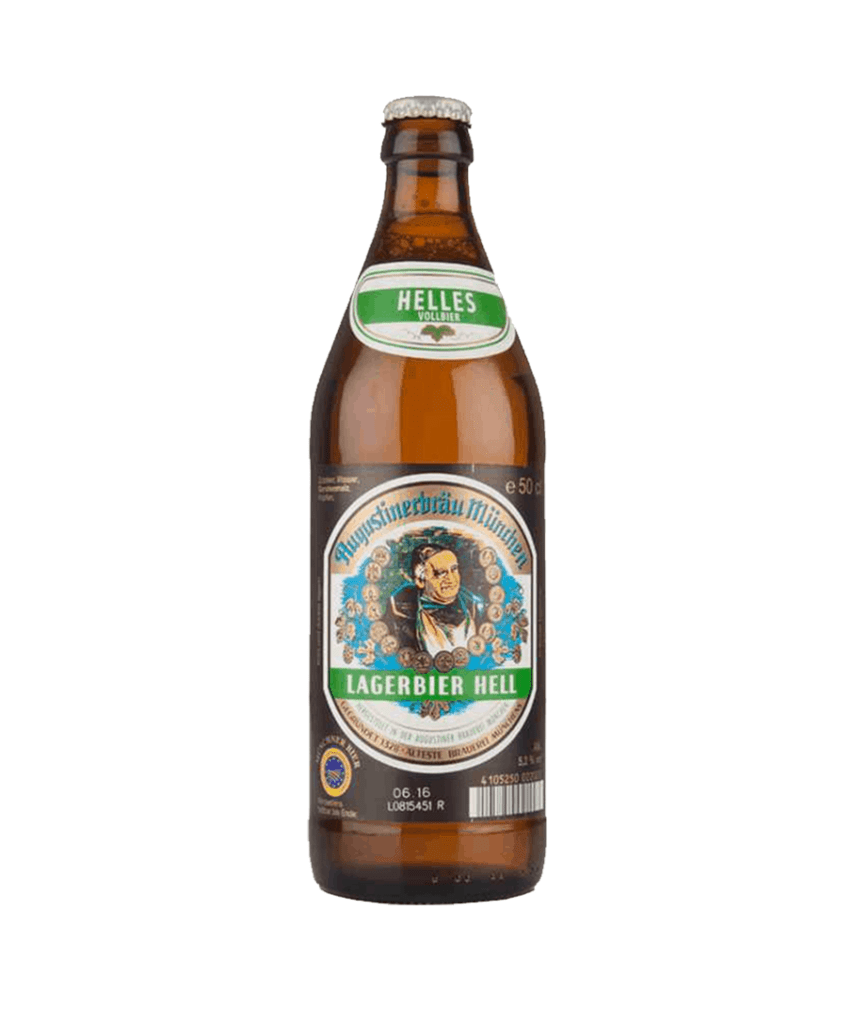Augustiner Bräu
Augustiner Bräu
Refreshing lager, great beer
World class, a signature crisp taste and a firm footing amongst the best beers in the world.
This is Augustiner beer: A range of premium lagers known for their smooth flavour and fresh style.
Hailing from the Augustiner brewery, Munich’s oldest independent brewery, this range of Helles beers has become a firm favourite for beer enthusiasts who appreciate beers brewed to perfection in a setting where great beer will always be on tap.
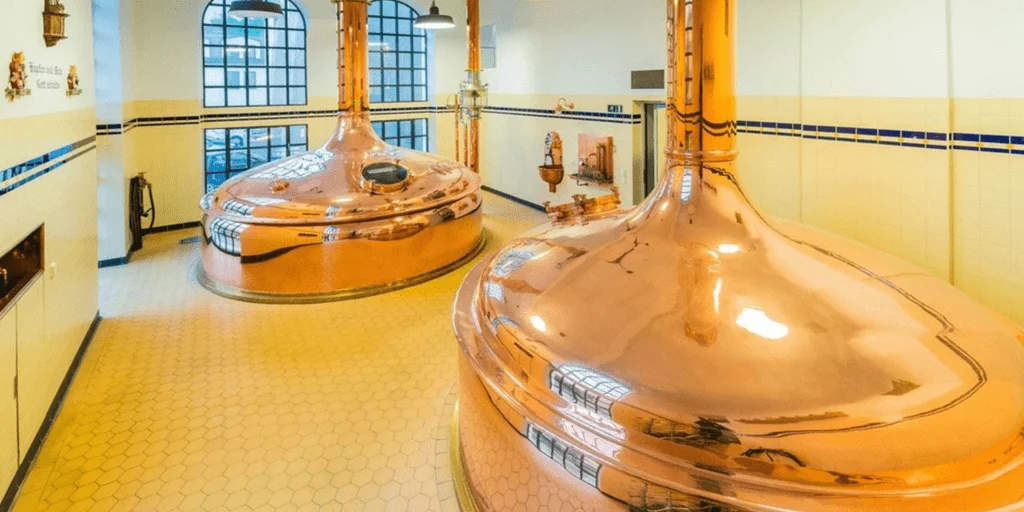
What kind of beer is Augustiner?
Hailing from a brewery where Augustinian monks first brewed beer centuries ago, Augustiner beers carry all the traditional hallmarks of classic lagers.
These crisp refreshing lagers are made strictly according to German purity laws, and only contain key traditional ingredients: treated water, hops, malts and barley.

What are the signature characteristics of Augustiner lagers?
Thanks to long secondary fermentation and wood barrel ageing, Augustiner lagers bring forth signature tastes that are instantly recognisable.
From a light hoppy finish and herb flavours to an undeniable great quality, Augustiner beers always come highly recommended.
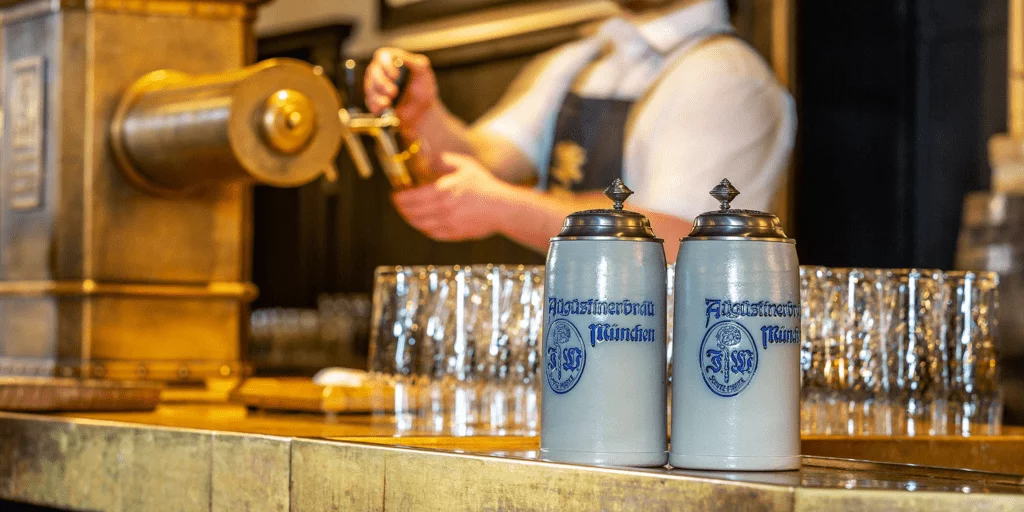
Augustiner beer range
Are you ready to get a taste of some of the finest German beers at a good price?
Have a look at the Augustiner beers range below.
*Enjoy responsibly. Not for sale to people younger than 18 years old.
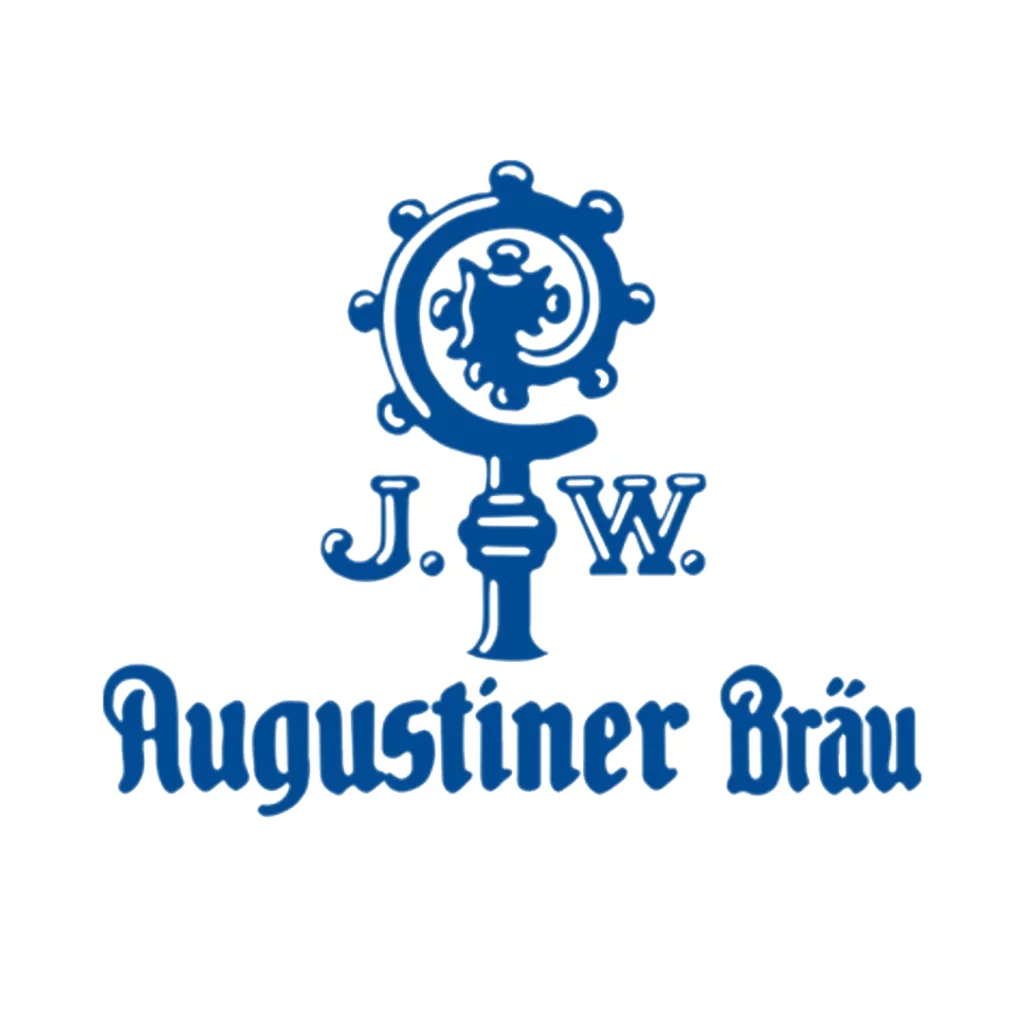
Shop the Augustiner beer range
Augustiner Edelstoff
(5.6% ABV)
Edelstoff is a classic helles beer that has that signature refreshing Augustiner flavour. This pale-style lager has a subtle sweetness with a crisp taste.
Augustiner Helles
(5.2% ABV)
Another smooth flavour in the range, Augustiner Helles has biscuit and smooth flavours, matched by a smooth signature taste and citrus notes.
Augustiner Dunkel
(5.6% ABV)
This malty dark lager, with its creamy head and deep amber colour, showcases a bouquet of pumpernickel malts and hops.
Augustiner Pils
(5.6% ABV)
This classic pilsner lager with its pale gold colour is made according to a traditional recipe that perfectly captures the essence of a quintessential Pils.
Augustiner Weissbier
(5,4% ABV)
Perfectly served ice cold, this wheat beer, with its attractive amber colour, has a subtle malt sweetness and a touch of spice – although not as spicy as other wheat beers.
Augustiner Oktoberfest Bier
(6,3% ABV)
This traditional, pale Märzen beer is delightfully light-tasting and easy to drink with sweet caramel flavours and a dry, crisp finish.
Augustiner Maximator
(7,5% ABV)
Augustiner Heller Bock
(7% ABV)
Heller Bock is a Maibock-style lager with pleasing malt and light toast flavours. Strong and smooth, it has a touch of sweetness too that is balanced by floral and hops notes.
The history of Augustiner-Bräu
When it comes to German beers and refreshing lager, one producer’s name stands out above the rest: That of Augustiner-Bräu, a privately owned brewery in Munich.
Also called the Augustiner Brewery, this well-known company is responsible for several of the best beers on the market today.
These include the famous Augustiner Helles, Edelstoff, Weissbier, Pilsner, Dunkel and even the iconic Augustiner Oktoberfest beer.
Each refreshing lager variety brewed here is known for its clean, crisp tastes thanks to high-quality brewing traditions.
Augustiner lagers are also famous for their smooth mouthfeel and easy-drinking nature, something that any beer enthusiast with a passion for malty lagers will surely appreciate.
So, how has Augustiner-Bräu become this incredible tour de force? And how has it evolved from a single brewery to one that is also linked to restaurants and the Oktoberfest?
Keep on reading to find out more about this brewery’s incredible history …
Munich's oldest independent brewery
An almost unbelievable feat is that the history of the Augustiner Brewery encompasses centuries of beer brewing.
It was founded in 1328 in Munich and was established in an Augustinian Monastery.
Originally, Augustinian monks were in charge of beer brewing and provided beer for the Bavarian Royal Wittelsbach family.
This would continue until around 1589.
When the monastery was dissolved in 1803 due to the secularisation movement, the state managed the brewery for a while before it would eventually become privately owned.
Although the original building had suffered neglect and was in poor condition, this did not mean the end for the Augustiner Brewery.
It was moved to Neuhauser Straße (which today is a retail and shopping hub in Munich city itself).
A new chapter in Augustuner Brewery’s legacy would soon follow, with a well-known brewing family taking on the reigns as private owners of this establishment.
Anton Wagner and Therese Wagner were at the helm of managing the brewery and expanding its prospects.
Anton would eventually grow the business with an expansion to a storage facility on Rosenheimer Straße, and after his passing, Therese would continue to run the brewery.
Augustiner Brewery continued to thrive, and another storage facility was acquired on Landsberger Straße.
The decision was eventually made to move all production to the new site, while the brewery maintained a restaurant at Neuhauser Straße.
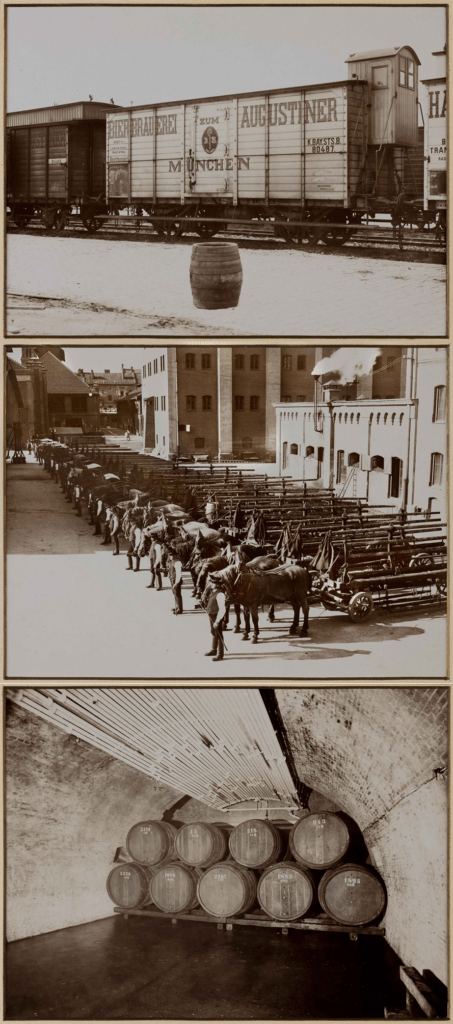
Josef Wagner's legacy
Josef Wagner took over management of the Augustiner Brewery after his mother’s passing, and the business continued to expand – most notably with a storage facility on Arnulfstraße 52.
This setting is also home to the well-known Augustiner-Keller and beer garden, a popular destination for lager enthusiasts near Munich.
Sharp-eyed beer lovers will no doubt have recognised the heritage honouring “JW” on Augustiner’s bottle labels, which is of course the initials of Josef himself.
Another historical event – that of the World War II bombings of Munich – led to the brewery suffering significant damage. However, renovations were made in the 70s, and stainless steel tanks were introduced.
In 2013, Augustiner would also bring to life the Augustiner Klosterwirt restaurant, which is located at the original premises where the brewery once was.
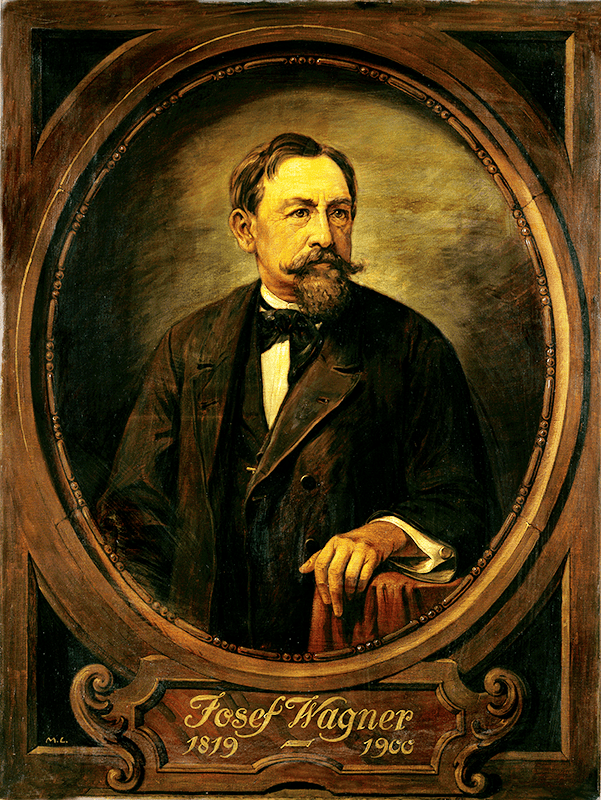
Edith Haberland Wagner Foundation
In 1996, Edith Haberland Wagner passed on her brewery share to the Edith Haberland Wagner Foundation.
Today still, Augustiner-Bräu Wagner KG remains the majority shareholder in the business.

The Augustiner Brewery today
Augustiner-Bräu is more than just a part of Munich’s history.
It continues to thrive as a popular brewery while still upholding its community’s traditional and social values.
Augustiner also infuses every aspect of its business with celebrated brewing practices.
From the wooden barrels used to produce and age the lagers to the no-fuss labels and signature German beer tastes, every part of the Augustiner story is inspired by German tradition and culture.
This foundation makes this site’s atmosphere a perfect setting where celebrated lagers take shape under the expert touch of the Augustiner team.
So, whether you are enjoying a taste of Augustiner’s craftmanship poured directly from wood barrels at Oktoberfest or savouring food pairings at the Augustiner-Keller, this heritage-rich range will leave a lasting impression.
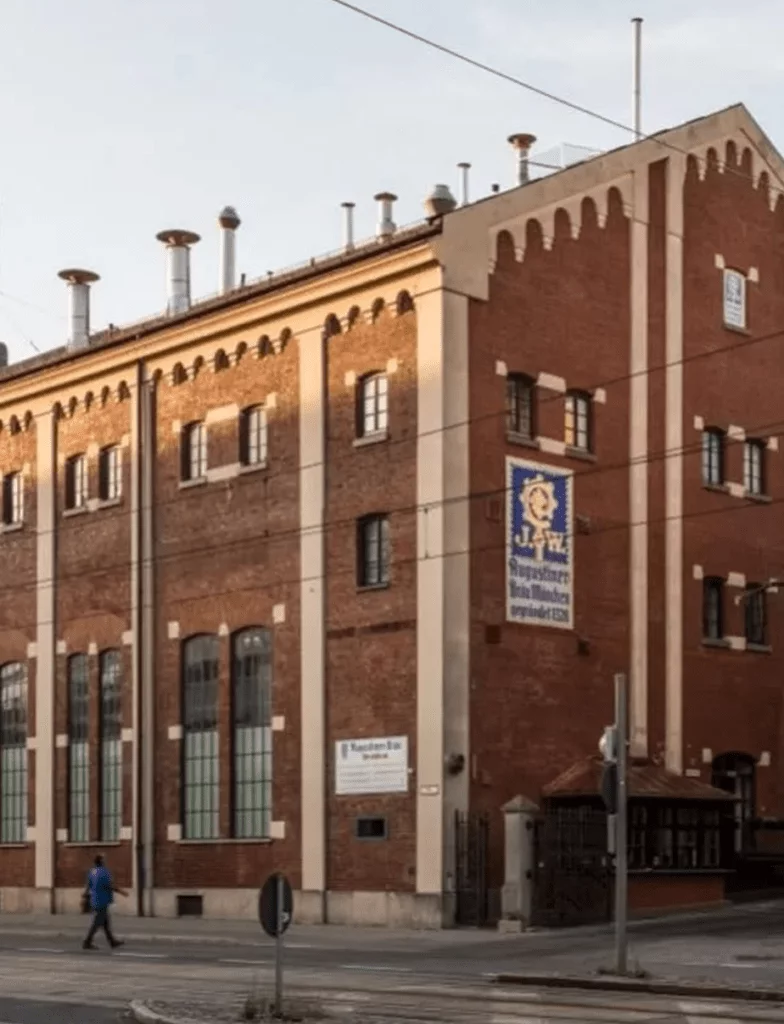
Everything you need to know about Augustiner Beer
What is Augustiner beer?
The Augustiner range includes helles, export beer, wheat beer, pilsner and dunkel.
The brewery also produces seasonal beers such as the Oktoberfest Bier, Heller Bock, and the Maximator.
Is Augustiner a good beer?
Thanks to its strong beer brewing heritage, Augustiner beer is known as one of the best beers served in the world.
They set the standard for crisp Helles-style lagers that are of the highest quality.
What is the most popular Augustiner beer?
Augustiner Helles Lagerbier, with its mild and sparkling character, can be considered the most popular Augustiner beer.
This lager has a subtle sweetness balanced by a slight bitterness. Its smooth taste and notes of biscuit and lemon make it a classic and very drinkable lager.
What makes Augustiner lagers so special?
Each Augustiner beer is made according to German purity law. This means only select ingredients are used for the production of these lagers.
These ingredients include high-quality brewing water, malted barley, premium hops, and yeast cultures.

